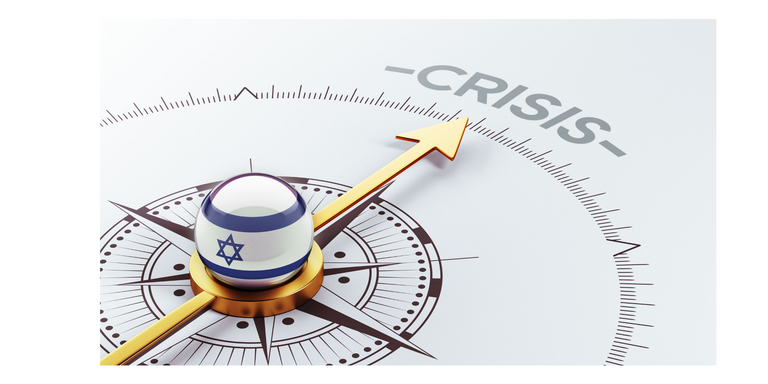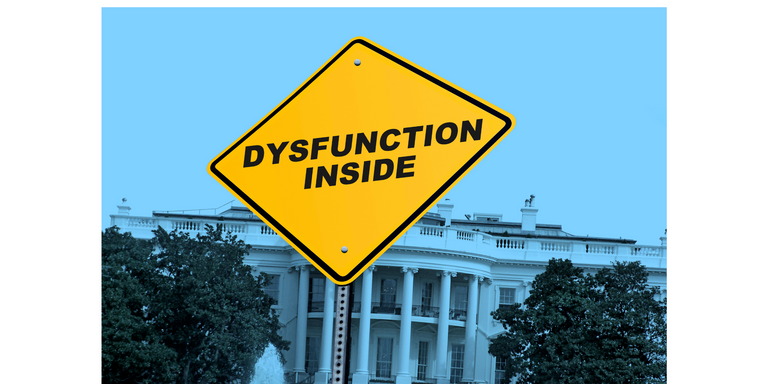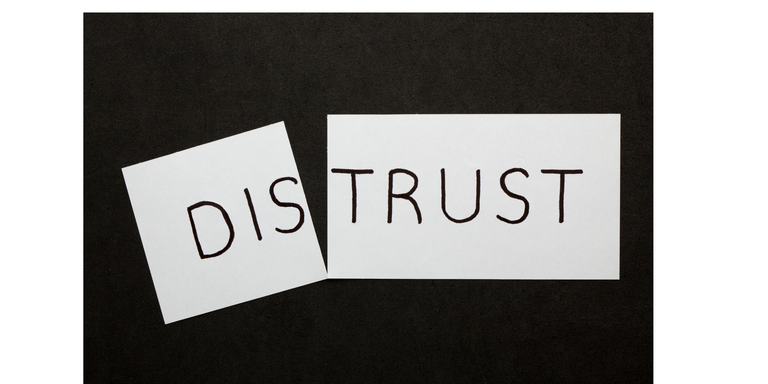A philosophy of everything in the emerging tech-society and what Israel’s Banking Sector tells us about maladaptive competition
I have lived in Israel for over twenty years.
It has always struck me that Israel has been forced to deal with many issues in the past twenty years that have been prescient of what later rolled out in the world.

(Note I mean the real issues, not those that Israel is well known for in the international press, which is mainly bunk and provide neither realism nor depth).
For example - a lack of natural resources (thus Israel innovated solar power, solar heaters and water technology), terrorism (Israeli spearheaded counter-terrorism measures, some more or less successful than others) and cyber attacks (Israel leads the world in cyber).
I would say that these issues were due to our fate- being a pawn to larger geopolitical winds (such as the past Cold War) -and our deep desire to simply survive.
Of course the world has moved on. For example, the Cold War of USA and the USSR is now being replaced by an evolving bipolar /multipolar global hegemony. Yet Israel’s innovations continue to contribute.
Anyhow, for these reasons, and due to an intense and wide matrix of personal and professional encounters, I am naturally alert and curious as to what the future brings and tend to look and understand at what is going on here and in the wider world, and the wider ramifications.
So let’s kick off this possibly circuitous but hopefully captivating post with US campaign organizer Carville’s 1992 quip “it’s the economy, stupid.” And from there, to the larger topic that I wish to cover in the eclectic essays that will follow.

Here in Tel Aviv, we were recently granted the dubious award of living in the world's most expensive city.
And for many years, Israeli citizens know all too well the high cost of living. Despite Israel having the second highest number of billionaires per capita globally, for working Israeli, wages are far from high across the board. In the working population, only 9% enjoys High Tech salaries (for as long as this boom will last). Economic inequality is high, persistent and alarming. (The top decile of Israeli families have a net income 8.4 times higher than that of the bottom decile but their expenses are 2.4 times higher than the bottom decile ). Poverty afflicts over 21% of the population, and the most poor population is doubling in size every 16 years. Though Israel’s overall debt to GDP per household is very strong (44%), - those that are lower income that are burdened with the most debt. Many live beyond their means with on average a negative checking account balance of approximately $7,000. Nearly 25% have a perpetual overdraft.
But regarding the high cost of living in Israel- there is another preventable contributor - monopolies.
Despite social protests, monopolies strangle the economy - the food, energy, fuel supply, telecommunications supply and, of course, banking.

And here we now turn to the Israeli banking sector. That the average Israeli citizen overpays bank fees is recognized, yet the only true power the Bank of Israel has is to intervene by way of encouraging more transparency over banking fees.
A lucid observation about the Israeli banking sector is this - it’s not that the banks are not competitive. It is simply that they are competing with each other as to who can overcharge their customers the most!

This is a great springboard to discuss maladaptive competition in a more general sense.
Here we are in Israel, with a large minority that is impoverished or struggling on a daily basis, the economy is free market and competitive on paper- and yet people who cannot afford it are being overcharged for basic banking services.
Where is the issue? Isn’t competition mean to solve these issues?
Well yes, in general, market competition is a very good thing, when it acts for the public good. In fact, the public good is enshrined in law as being the very reason for encouraging competition (The US Rockefeller monopoly, which nearly bought down the US government put the public good as the raison d’etre for the birth of antitrust, on the basis that a lack of competition caused consumer harm).
But here’s the rub- competition can be functionally maladaptive.
People in the property business often like to throw out a phrase- the market, at any one time, is either a buyers market or a sellers market. Likewise, we can view the banks in Israel as sellers and customers as buyers, and cynically remark that Israeli banking has been a seller’s market for too long. As a result, for years, banks have maintained or hiked up consumer charges.
A hoped for breakthrough in breaking the monopoly is the newly formed incumbent online bank, the FDA (First Digital Bank), founded by Mobileye’s Amnon Shusha. https://www.timesofisrael.com/new-israeli-digital-bank-raises-120m-with-asian-european-investors/ The hope is that widening consumer choice will pressure expensive Israeli consumer banks to lower their prices. Increasing the supply of banks gives consumers more power.
But increasing competition in this way is not necessarily a solution. Even if incumbent banks enter the market, if consumers do not take action to switch banks, the overcharging will continue. And if a niche of consumers switch banks (such as Millennials, who are more likely to use Fintech solutions) then the other cohorts of customers may well continue to be overcharged.
Consumers apathy- resulting in not switching providers despite that being against their rational interest- is a harbinger of a wider cynical revulsion and a phenomenon of our times. When the public loses trust then competition which is meant to be for the public good, works actively against the public good and becomes maladaptive. In the example of the Israeli banking sector, it is at this point that banking becomes a “sellers’ market” of banking providers who out-compete each other to overcharge their customers.

Maladaptive competition is destructive to the greater good. It shows up the world over. And the world over, there is growing public revulsion to it. It needs to be fixed.
When consumers see that systems of government and economy function maladaptively and as a result they are passive (for example, not switching banks- and also by not speaking out) then the dysfunction continues.
In this upcoming series of essays I want to highlight how monopolies and competition are showing up in the emerging technosociety.

Although covid and vaccines, the debate on centralization and decentralization, global oil dependence and the Attention Economy and AI and the tyranny of the minority, ethics, political populism and Milton Friedman do the human need for genuine connection seems remote from competition- seem disconnected, they are intrinsically linked issues.

But as I will there is more than an inherent connection, and the thread is not tenuous.
To be clear, I am neither anti capitalist, nor a conspiracy theorist nor anti vaccine.
What I would like to provide is a rationale framework that unifies discussion of these upcoming issues. Without a comprehensive framework to understand how technology is impacting society, we cannot comprehensively and explicitly measure and monitor if things are going towards the public good.
That regulators lag behind technological industrial developments is not new. But what is new are three things- firstly the accelerated pace of technology development, secondly, the way all technologies and verticals are merging and thirdly emerging and merging of commercial technology interests and government.
As we slide into a society that is more connected than ever before, we need to clearly think far more clearly about what the public interest is.
We are entering a new paradigm - and new paradigms have new rules and need new frameworks to have the right language and metrics to measure their impact.
More than that, citizens - who are neither government nor company- need a space with our voice.
Because the maladaptive competition - in the Israeli banking sector or elsewhere- is not just about banking charges.
There is maladaptive competition emerging everywhere, and widespread public revulsion of it is driving global public distrust. Whatever your stance on vaccines, you can view this by observing how distrust has broken down over how governments have handled and mishandled Covid.
Governments and technology companies are increasingly colliding, synthesizing and colluding.
We need deliberate and diverse rationalism to take its place on the centre of the stage. We need the third voice of citizens more than ever before to discuss issues clearly and to hold it within the construct of a singular space. We need, if you like, a new philosophy.
If we do not we are beholden to capitulating to Taleb’s tyranny of histrionic minorities- from every end of the political spectrum- grabbing the stage and influencing politics and populism, as is already happening via the incentive structure of Attentional Economics, which I will discuss in due course.
As Peter Drucker said, “what gets measured, gets managed.” If we do not articulate what we hold dear, no one else will. The extent to which technology, commercial interests and government are becoming intertwined is unprecedented.
I hope that you will find these whimsical essays of interest. And not just that, but applicable.
I don’t have all the answers.
I wish to provide a more holistic framework to make sense of the new paradigmatic age of the sociotechnical society and what we need to pay attention to as citizens.
This is not a trivial matter- and it is urgent.
The framework I provide is eclectic at times and may be challenging to follow at times, but it is internally logically consistent. I hope you will find it interesting.
If you are interested in following this, feel free to follow me and comment below as to the issues that concern you that you wish to be covered.
Dear @saronaspecial,
Your support for our proposal has been much appreciated but it will end in a few days!
Do you mind renewing your vote to our proposal for 2022 so our team can continue its work!
You can do it on Peakd, ecency, Hive.blog or using HiveSigner.
https://peakd.com/me/proposals/199
We wish you a Merry Christmas and a Happy New Year!
Dear @saronaspecial,
Your support for our previous proposal has been much appreciated but it expired end of December!
Do you mind renewing your vote to our proposal for 2022 so our team can continue its work!
You can do it on Peakd, ecency, Hive.blog or using HiveSigner.
https://peakd.com/me/proposals/199
We wish you a Happy New Year!
Congratulations @saronaspecial! You received a personal badge!
You can view your badges on your board and compare yourself to others in the Ranking
Check out the last post from @hivebuzz:
Support the HiveBuzz project. Vote for our proposal!